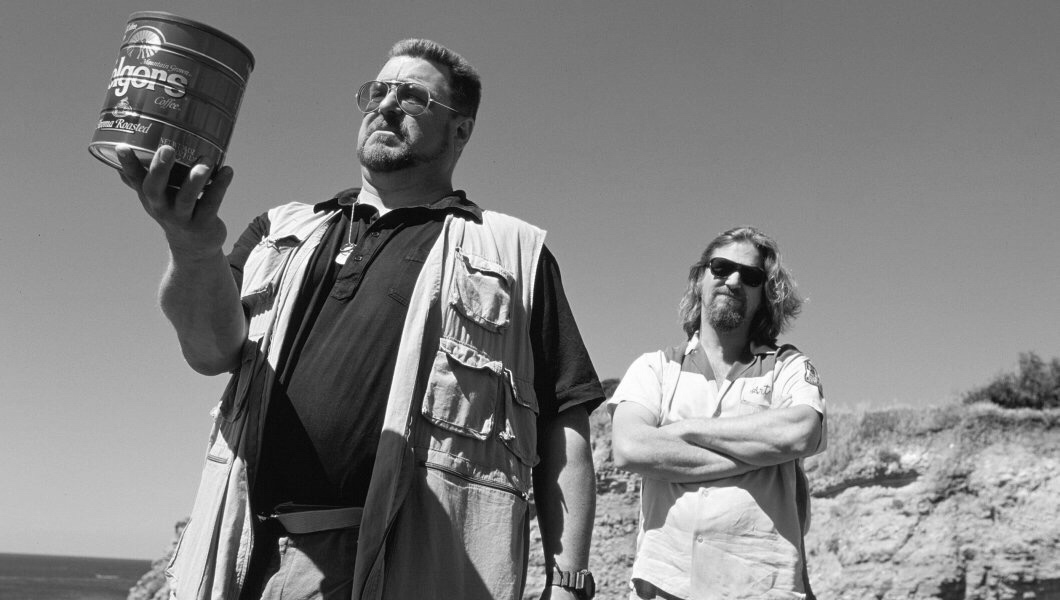Coffee’s Soft Power Shift
The United States has long been at the centre of the global coffee industry. But as policies shift under the Trump administration, that dominance is under threat.
“I’m staying. I’m finishing my coffee. Enjoying my coffee.”

The significance of coffee to The Big Lebowski is overshadowed by the prominence of its alcoholic cousin the White Russian, but over the course of this meandering, opaque, brilliant film there are numerous instances where coffee sneaks into frame.
The Coen Brothers' 1998 cult masterpiece involves a laid back waster known as The Dude and his unwitting involvement in a kidnapping plan gone awry. It’s a Raymond Chandler-inspired neo-noir, with the main difference being the complete lack of comprehension shown by most every character in the film.
Note: This article is going to assume some familiarity with the movie, so if you haven’t seen it then please, stop reading and go watch it. It’s probably on the internet somewhere.
Also, spoilers.
All clear? Great. Let’s continue.

A couple of quick examples:
However, the most important scene, and the only one which actually involves coffee and isn’t just a blatant excuse to quote the movie, is the scene set in Johnie’s Coffee Shop, a now-defunct Los Angeles landmark on the corner of Wilshere Boulevard and Fairfax Avenue.
The conversation devolves from the subject of Walter’s ability to acquire a toe by 3 o’clock that afternoon (with nail polish) to a debate on the subject of civil liberties and the First Amendment after Walter is asked to be quiet by the waitress (this is a family restaurant, after all).
“Oh please, dear! For your information, the supreme court has roundly rejected prior restraint.”
In the end the Dude bails - “Hey Dude, don’t go away, man! Come on, this affects all of us man! Our basic freedoms!” - although Walter steadfastly refuses to leave until he’s finished his coffee.
“I’m staying. I’m finishing my coffee. Enjoying my coffee.”
Truly, words to live by.
A newsletter about coffee—its culture, politics, and how it connects to the wider world.